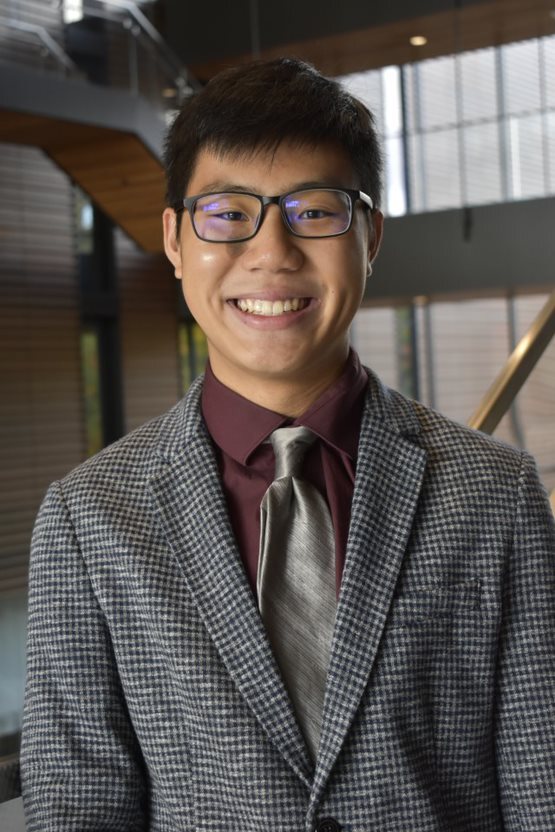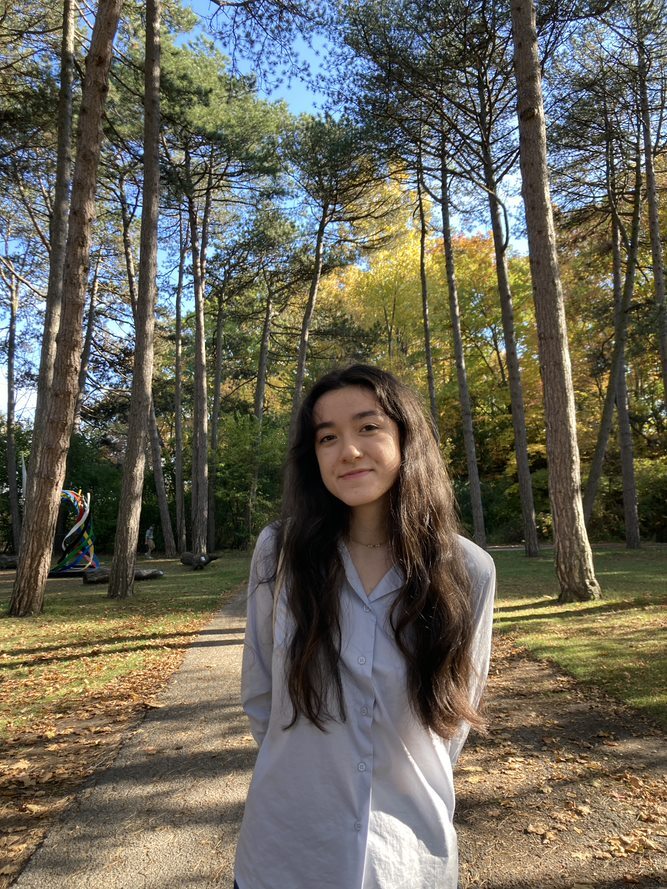The Patricia and Peter Shannon Wilson Undergraduate Research Prize
The Patricia and Peter Shannon Wilson Undergraduate Research Prize is awarded to current undergraduate students enrolled at the University of Toronto during each academic year. The purpose of this prize is to showcase and award students’ effective and innovative use of information sources and the development of their understanding of what it means to be information literate in the 21st century.
Read more about the competition criteria
2023 Prize Winners
Andrew Huynh
1st year, University of Toronto Mississauga
Research project
Does sleep deprivation increase the concentration of amyloid beta peptides in the central nervous system?
Course: BIO152H5: Introduction to Evolution and Evolutionary Genetics
About Andrew
What is your major and expected year of graduation?
I am pursuing a double major in Biology for Health Sciences and Chemistry at the University of Toronto Mississauga. I am expecting to graduate in 2026.
What does it mean to you to win this prize?
I am incredibly grateful and honoured to have my hard work recognized by this prize. Having just finished the first year of my undergraduate career, receiving this prize is a significant step on my journey as an aspiring biomedical researcher. I am motivated to continue to aim for excellence in my future research endeavours.
What inspired you to choose this research subject?
Given the opportunity to research any biological topic of interest for my BIO152 Scientific Literacy Project, I chose to explore the intersection between my interests in molecular biology and human health. As such, my concern regarding the normalization of abnormal sleep habits amongst my loved ones and society as a whole led me to study how sleep deprivation contributes to neurodegeneration. I specifically chose to investigate the effect of sleep deprivation on amyloid beta peptides, which are molecular hallmarks of Alzheimer’s disease. Ultimately, this project is a product of my advocacy for the role of scientific discourse in promoting public health, especially through employing a preventative approach.
What did you learn about information-seeking, research, and/or libraries while completing your project?
By making use of purposeful search strategies such as employing boolean logic, I became confident in navigating scholarly databases such as Scopus and Web of Science to systematically find the sources most relevant to my topic. Furthermore, I had the opportunity to familiarize myself with the anatomy of different types of sources and the journals they were published in, such as the distinctive purposes of primary and secondary sources and the peer-review process of scholarly journals. Most importantly of all, I learned that although research can be an arduous, time-consuming process, asking for guidance from more experienced researchers and taking advantage of the plethora of resources offered by UofT Libraries can make it an extremely enriching, rewarding experience.
"Beyond identifying relevant studies to his research topic, Andrew demonstrated impressive understanding of the publications by carefully considering the strengths and limitations of each study and reflecting on their broader implications on the nature of research. For instance, Andrew identified ethical implications concerned with sleep deprivation, difficulties with generalizing the results of small samples to an entire population, and the issue of bidirectionality in attempting to prove causation. His analysis culminates with insightful suggestions for future research in sleep deprivation and molecular dysfunction."
-- Professor Frances Wong, Instructor for BIO152H5, Introduction to Evolution and Evolutionary Genetics
Adrian Jaime
2nd year, University of Toronto Mississauga
Research project
A New Transcription and Translation of Pedro de Ayala's 1498 Letter
Course: HIS299Y5: Research Opportunity Program
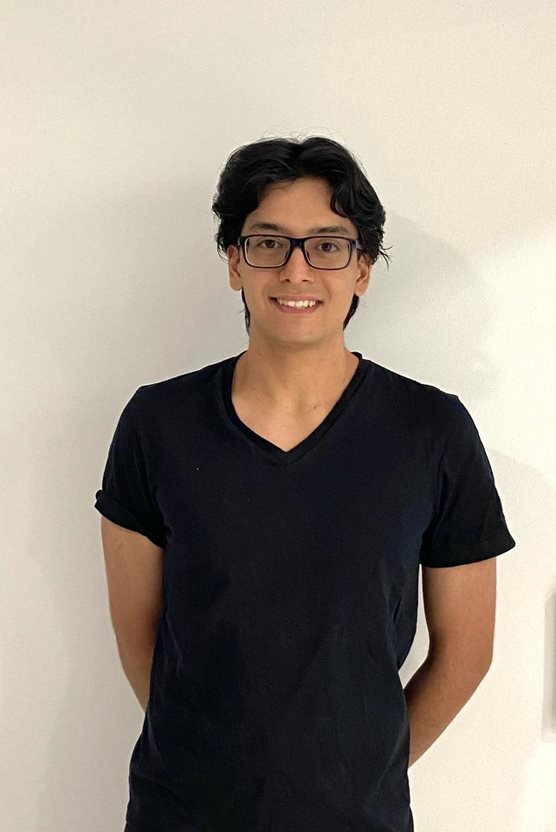
About Adrian
What is your major and expected year of graduation?
I am a second-year student at UTM, pursuing a combined specialist in History and Political Science. I expect to graduate in 2025.
What does it mean to you to win this prize?
I am honoured to have received the Patricia and Peter Shannon Wilson Undergraduate Research Prize. As conducting research on this scale was new to me, I feel validated and recognized for my work. I hope to continue researching this topic, so receiving this award motivates me to continue my endeavours.
What inspired you to choose this research subject?
When researching Scottish history for an ROP taught by Professor Mairi Cowan, I came across Spanish primary source documents on 15-16th Spanish-Scottish diplomacy which were quite essential to the scholarship. I always wanted to use my Spanish skills when researching, accordingly, I analyzed these sources in their original Spanish and their English translations. The English translations were not as precise as they could be, so I wanted to show how a new translation could be more accurate and provide new historical insights. The political intrigue of the Spanish documents fascinated me, and so did the early modern Spanish writing, which proved a tough but rewarding challenge to translate.
What did you learn about information-seeking, research, and/or libraries while completing your project?
I learnt that information-seeking can be quite difficult, especially in niche topic areas. There was a lack of sources on the Spanish primary source letter I worked with, and so I became particularly indebted to other scholars whom I conversed with online or in-person to guide me in my research. It took much effort to piece together as much information as possible, but finishing the project was a fantastic experience. In the end, I realized that research is collaborative and community-building.
“Adrian’s perseverance in in locating, transcribing, translating, and interpreting a letter written in 1498 by a Spanish ambassador at the royal court of Scotland has been outstanding. His work, completed as part of the Research Opportunity Program course HIS299H5Y Working with the Sources of Early Modern History, far exceeds the expectations in a second-year course and is poised to contribute an important resource to the fields of Scottish history, English history, and early European voyages of exploration to North America.”
-- Professor Mairi Cowan, Instructor for HIS299Y5, Research Opportunity Program
Sophia Stellato
2nd year, Faculty of Music
Research project
Illuminating History: Analyzing the Antiphonarium and Breviarium Manuscript Illuminations and their relation to the Catholic Church's Power in the 14th and 19th Century Societies
Course: HMU225: Historical Survey I
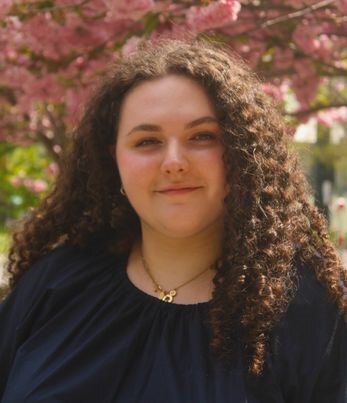
About Sophia
What is your major and expected year of graduation?
I am pursuing a specialist in Music Education at The University of Toronto’s Faculty of Music and am expecting to graduate in 2025.
What does it mean to you to win this prize?
I am deeply honoured to have been selected as a recipient of this prize. This award is the result of the dedication, persistence, and creativity that is required when completing a research project. I am grateful to belong to a community that values research and scholarship and to have access to The University of Toronto Libraries’ vast collection of resources. This award has encouraged me to continue to develop and refine my research skills, as well as explore further projects within the field of Musicology. Furthermore, to have my work recognized by the University has been a great personal honour. I am very thankful to my family, friends and professors who have supported and guided me throughout my university career.
What inspired you to choose this research subject?
The initial inspiration for this research topic arose as I was searching for manuscripts to study for HMU225’s final paper. One manuscript immediately stood out due to the intricate artwork adorning the pages. After reading about the manuscript in the Thomas Fisher Rare Book Library catalogue, I noticed some peculiarities about the artwork, namely the inclusion of both sacred and secular figures within the same manuscript. Intrigued by this anomaly, I decided to attempt to uncover why this had occurred.
What did you learn about information-seeking, research, and/or libraries while completing your project?
The most valuable lesson I learned from this experience is the importance of utilizing resources outside of traditional databases or library engine searches. Interviewing experts within the field of early music proved to be one of the most useful and effective methods of collecting information. Additionally, performing an in-depth literature review of bibliographies helped to not only formulate my research questions but also find useful sources to support my ideas and claims throughout the paper. These sources would have been difficult to find by performing basic internet searches, so it was an extremely valuable experience learning about in-depth and higher-level research techniques. I feel as though these methods have helped to elevate the quality and efficiency of my research, and my paper’s effectiveness to disseminate information clearly and concisely.
I want to emphasise above all that Sophia showed extraordinary initiative in seeking out this beautiful but mysterious source for her term project, and as the instructor of HMU225 I was deeply impressed and proud of the results. She located all of the sources used in this paper independently, with the exception of Barbara Hanning’s Concise History of Western Music, which is used to give context in the opening pages, and is the textbook used for this course.
-- Professor Ellen Lockhart, Instructor for HMU225, Historical Survey I
Alex Liu
4th year, Victoria College, Faculty of Arts & Science
Research project
Redefining Community, Desire and Liberation: Gay Asians of Toronto
Course: HIS496H1: LGBT Liberation: Archives, Periodicals, and Visual Culture
About Alex
What is your major and expected year of graduation?
I am a Victoria College student graduating this June after completing a specialist in international relations, a major in history, and a minor in political Science within the Faculty of Arts and Sciences.
What does it mean to you to win this prize?
As an incoming Master of Information student, this award is an incredible closing to my undergraduate degree and beginning to a future in information studies! It is an honour to be recognized in the department where I will continue my academic journey, as well as an immense encouragement as a student to be supported by UofT Libraries in exploring local, transnational, and marginalized histories.
What inspired you to choose this research subject?
The scope of Professor Mezo-Gonzalez's course was instrumental in myself even discovering the history of LGBT liberation in Toronto as well as the idea of exploring this topic through archival materials. Throughout the semester, we analyzed similarities, differences, and interactions among LGBT liberation movements and groups across the Americas, including in Toronto. As someone who has roots in Toronto and abroad, I was interested in exploring further how both local and international forces impacted the experiences of a specific group within a much wider cultural movement.
What did you learn about information-seeking, research, and/or libraries while completing your project?
Specific to my topic, I learned through experience about how the creation, archiving, and dissemination of information can and has been a form of activism in itself. I wrote my paper based largely on primary research done at the ArQuives here in Toronto, which involved conversations with the reference archivist about the ArQuives's origins, about how movements are kept alive, and about how we can track the momentous changes in Toronto's social landscape through investigating these archives. I also learned about how, facing oppression, many of these groups saved much of their materials even if they didn't know what future significance they might have. Community archives are invaluable to keep coming back to as sites of activism and innovation while the field of archiving and studying marginalized histories evolves. I learned that research is not a cut-and-dry process, but a dynamic exploration and interpretation of materials in various locations, both digital and physical.
Ms. Liu’s use of archival sources was meticulous and insightful, and it allowed her to support her argument while centering the voice of the Toronto-based gay Asian community. She also did an excellent job locating relevant secondary literature that enabled her to properly contextualize the subject under discussion, including a wide variety of academic articles and book chapters. Her work was not only an original approach to this history, but also a remarkable attempt to contribute to the queer historiography of Canada.
-- Professor Juan Carlos Mezo-González, Instructor for HIS496H1, LGBT Liberation: Archives, Periodicals, and Visual Culture
Fatema Mullan
4th year, Woodsworth College, Faculty of Arts & Science
Research project
Law and Land: Coloniality in the Labour Landscape of Trinidad
Course: HIS491Y1: Senior Thesis Seminar
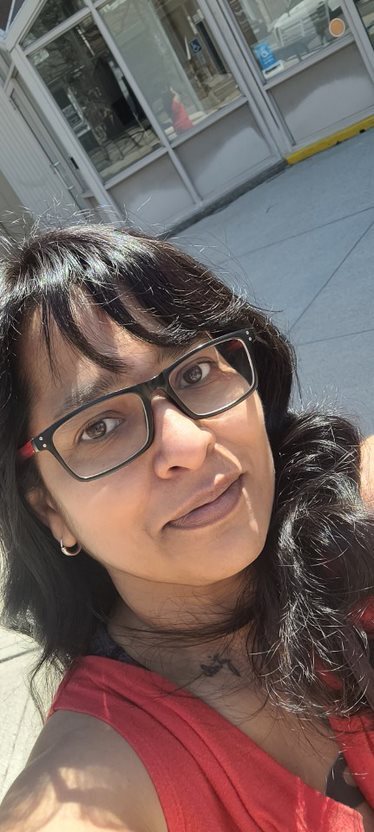
About Fatema
What is your major and expected year of graduation?
I am pursuing a specialist in History and majoring in Diaspora and Transnational Studies through the Faculty of Arts and Science and am a member of Woodsworth College. I look forward to graduating in 2024.
What does it mean to you to win this prize?I am honoured to be a recipient of this prize. It provides recognition and validation of my research skills and my hard work over the past eight months. Receiving this prize also motivates me to continue my academic pursuits and explore the wealth of knowledge available in the academy.
What inspired you to choose this research subject?I am inspired by the decolonial work being done both inside and outside of the academy and hope my work contributes through illuminating colonial continuities. My research interests are rooted in the histories of empire and colonialism and how these histories continue into the present. I am interested in moving away from the notion of colonial legacies to explore continuities, and rather than articulating ends to colonialisms as historical ruptures I explore the concept of coloniality to articulate how colonial modes of being and power persist, but are obscured. In particular, my research uses the conceptual framework of the coloniality of labor to examine colonial continuities in Trinidad from the abolition of slavery in 1834 to the end of the Indian indentureship program in 1917. I analyze the use of legal mechanisms and land distribution during this period to articulate the shaping of Trinidad’s labor landscape in an effort to address the pre-independence racial polarization between Afro-Trinidadians and Indo-Trinidadians spatially, through an urban/rural divide, and in the political and economic spheres. My work explores tensions between colonial imperatives and the agency of the subaltern and demonstrates how the two are inextricably linked in the development of Trinidad’s labor landscape at this transitional historical juncture.
What did you learn about information-seeking, research, and/or libraries while completing your project?I learned a great deal about the research process during this project, including how to access all the different resources available. Conducting primary research in The National Archives UK and British Library allowed me the opportunity to learn from the archivists and librarians about reserving and handling archival materials. In addition, I gained experience in organizing and working with a large volume of primary sources and the digital tools available to help with this.
“Ms. Mullan’s research paper “Law and Land” makes an original contribution to the histories of colonial labour, the Caribbean and empires. It is based on a wealth of primary sources and is the result of a methodical research plan. Ms. Mullan began by finding what she could at Robarts, including press and legal sources. Next, she turned to inter-library loan. And finally, she added a key layer of original manuscript archival sources, to lend her project not just texture, but considerable originality.”
-- Professor Eric Jennings, Instructor for HIS491Y1, Senior Thesis Seminar
Jai Singh
4th year, Victoria College, Faculty of Arts & Science
Research project
The Democratic Republic of the Congo, Under MONUSCO
Course: POL478: Data Management and Visualization for Political Scientists
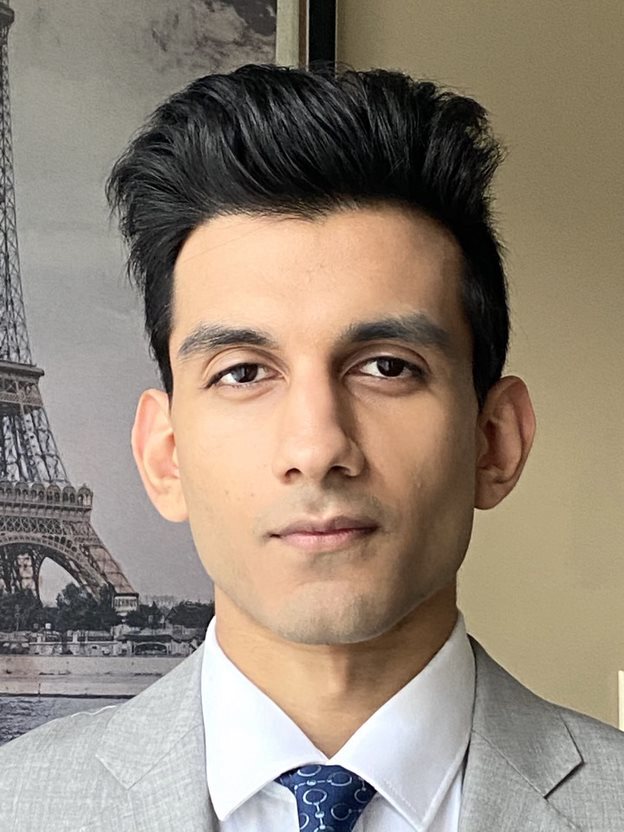
About Jai
What is your major and expected year of graduation?
I am a Victoria College student in the Faculty of Arts and Sciences, specializing in Political Science. I will be graduating in June 2023.
What does it mean to you to win this prize?
Before taking POL478, I was quite nervous, as I was still quite new to data visualization and was worried if I would be able to keep up with the material. As such, it is incredibly meaningful for my final project in that course to be recognized with this award, and I am now more motivated than ever to take what I’ve learned and apply it to future academic and professional endeavours.
What inspired you to choose this research subject?
As someone interested in both Sub-Saharan Africa (an increasingly important part of the global community) and the United Nations, I was familiar with MONUSCO, the UN peacekeeping mission in the Democratic Republic of the Congo (DRC). The summer of 2022 saw major anti-MONUSCO protests break out in the country, and I felt that there was an opportunity for me to utilize my newly acquired quantitative skills to explore the resurgent controversy behind the mission and how the DRC has been shaped by the UN’s presence.
What did you learn about information-seeking, research, and/or libraries while completing your project?
Two lessons come to mind – firstly, like many students here at U of T, I learned that scholarship is best conducted as a collaborative exercise. I benefited greatly from the perspectives of my professors, peers, librarians, and subject-matter experts. Without them, this project would not have been possible. Secondly, I also better understand how complex and engaging information-seeking can be – this project taught me how to utilize a range of sources (such as academic journals, books, databases) to explore my topic, while also remaining flexible in adapting my search strategies and evaluation criteria to the challenges at hand – such skills are very much needed in today’s information-heavy world.
"Mr. Singh produced a number of interesting graphs and combined his various sources in very creative ways. For instance, he tied a database on major violent events in the two decade period of MONUSCO’s intervention into an interactive map displaying the types of events and, when looking at an individual item, details about the event. Similarly, the line graph of the UN’s requests for donations and the amount received convincingly demonstrates what neither line alone would. On the whole, Mr. Singh’s dedication to gathering and properly using a wide range of sources is impressive and went above and beyond the requirements of the assignment."
-- Professor Michael Donnelly, Instructor for POL478, Data Management and Visualization for Political Scientists
